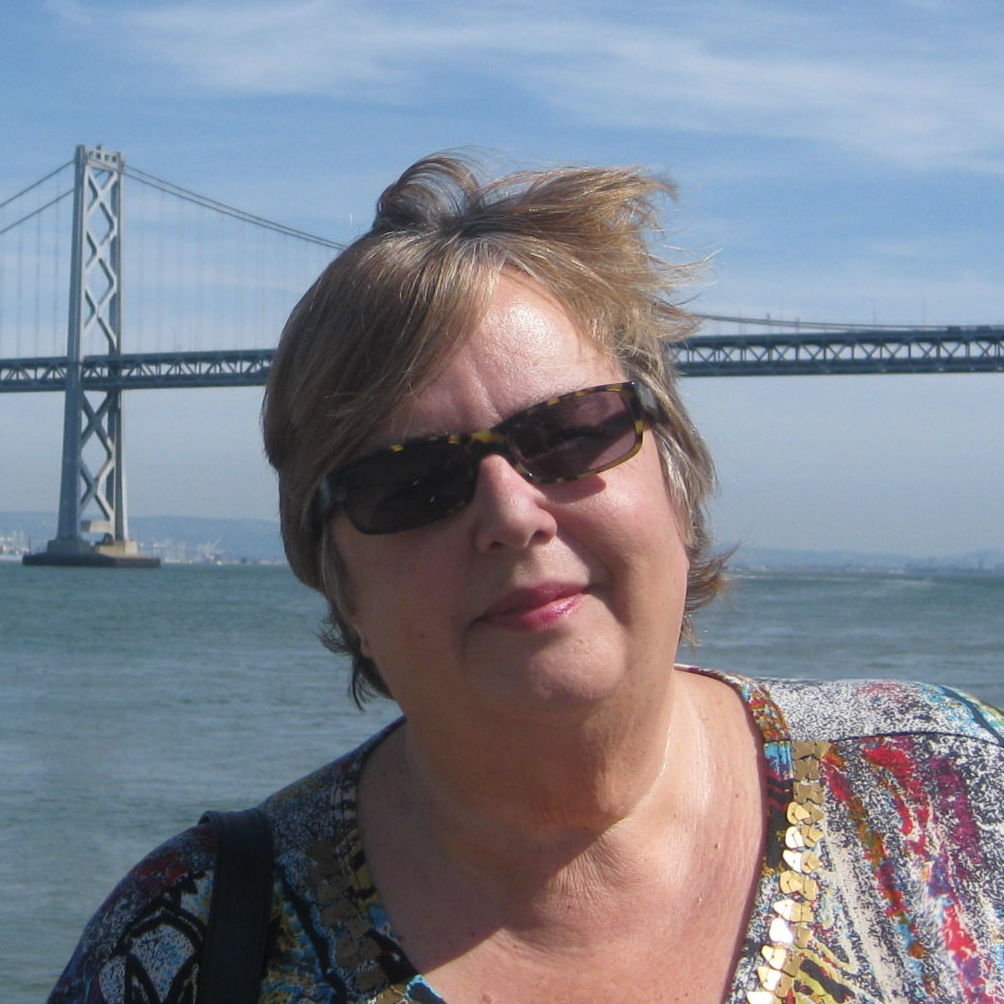Perhaps during no time in history have corporate meetings, particularly those in the medical/pharmaceutical realm, been under greater scrutiny. In one direction, there is a new set of stricter guidelines from the Pharmaceutical Research Manufacturers of America (PhRMA), and in another, headlines about lavish corporate conference spending in the midst of an ailing economy.
The recently issued 2009 PhRMA Code, a voluntary set of guidelines designed to ensure that meetings attended by healthcare professionals are free of drug company bias, places tight parameters around everything from gifts for doctors (no more pens or tote bags with company logos) to site selection for meetings. Code details can be accessed at www.phrma.org.
“This year the PhRMA Code goes so far as to say that hotels with the words ‘resort’ or ‘spa’ in their names should be avoided,” says Judy Johnson, a medical meeting specialist who is president of Dallas-based Rx Worldwide Meetings. “We now have hotels calling us and offering to take out the words ‘resort’ and ‘spa’ in their proposals, but it’s not that easy because their real name is still on the door.”
While perception issues and code guidelines have made it harder to justify choosing a luxury hotel, Johnson says companies can choose these properties and still be in compliance if they can document that the rate was reasonable.
“It’s not that they can’t go to a Ritz or Four Seasons, but the idea is to show that there was a hole in the calendar,” she says. “These days it’s all about documentation and backing things up every step of the way.”
Although the code guidelines are voluntary, planners and hotel executives involved with healthcare meetings say that a large and growing number of pharmaceutical companies are adhering to them.
“People are really falling in line,” Johnson says. “I think it has more to do with corporate failings in general, not just with the pharmaceutical industry in particular. People are aware of the headlines and they don’t want to be part of that.”
Julie Hills, senior director of pharmaceutical sales for Hilton Hotels Corp., adds that perception issues have been part of the pharmaceutical meetings world for quite some time.
“There’s been concern long before Michael Moore made his film about the healthcare industry,” she says. “No one wants to end up on 60 Minutes in a story about entertaining physicians.”
While some companies have recently become more concerned with compliance, others such as Wyeth Pharmaceuticals in Collegeville, Pa., had been meeting or even exceeding the PhRMA Code guidelines ever since they first appeared over a decade ago.
“While there has been a tightening up of regulations during the past couple of years, the real impact came when they were first introduced 10 years ago because the industry simply wasn’t doing things that way,” says Venessa Garst, regional manager for Wyeth’s meeting planning and travel department. “We always felt we were ahead of the pack, so it’s not a big burden for us now.”
Hills notes that the code guidelines are open for interpretation and that a pharmaceutical company can adapt them for their own needs.
“The code is a way that the pharmaceutical industry can regulate itself without having the government step in and regulate things for them,” she says. “There’s still a fair amount of confusion. The code guidelines pertain to meetings attended by healthcare professionals, not to meetings that pharmaceutical companies hold for their own salespeople. Hotels with ‘resort’ and ‘spa’ in their names can still be used for these internal meetings.”
Even before this year’s tighter guidelines, Hills says pharmaceutical companies were cognizant of the need to not appear to be “bribing” healthcare professionals to get them to prescribe or promote their products to patients.
“Many pharmaceutical companies have eliminated or reduced the dollar amount of gifts to healthcare professionals,” she says. “They used to give out pens and tote bags with logos—even these have been eliminated. The companies do not want the hotels to send amenities to their meeting attendees or provide upgrades.”
Hills adds that pharmaceutical companies are also giving hotels direction on how to handle attendees who may be members of the hotel’s loyalty program.
“For example, if a guest has Diamond-level status with Hilton, we either do not give them the Diamond benefits or give them the benefits with a letter stating that they are getting them because of their status with Hilton,” she says. “It has to be made clear with documentation that the benefits are not coming from the pharmaceutical company.”
Leaner Times
Garst and Sharon Esposito, also a meeting planner for Wyeth Pharmaceuticals, say that their meetings attended by healthcare professionals are lean and content-focused, with no recreation or lavish meals included in programs. While the company can meet at hotels with the word “resort” in the name, properties need to have a strong business focus and ideally include a secluded area for meetings such as a conference center.
“The meetings really have no amenities, certainly no gifts,” Esposito says. “Of course, we still have dinners or a reception and people still get together and network.”
Golf, once almost synonymous with medical meetings, is a distant memory, Johnson adds.
“No one asks for golf anymore, and even if they do, we cannot arrange for the tee times nor have anything to do with it,” Johnson says. “We had a new client that had a relationship with a five-star resort, and so they went there. Then they wanted spa appointments and tee times. We had to educate them without losing them. What attendees can do is come a day early or later and do things on their own.”
Aside from code considerations, leaner budgets are putting the crimp on pharmaceutical meetings just as they are in most industries these days. According to Hills, even pharmaceutical incentive programs are feeling the bite.
“We’re seeing companies change the requirements for who can win the incentive—there are tougher standards and fewer achievers,” she says. “They may choose an exotic destination, but perhaps a four-star rather than a five-star resort. The Caribbean is replacing Europe because of the dollar exchange rate.”
Planners and hoteliers note the growing trend to meet closer to home, as well as for more regional meetings.
“A lot of business is staying regional right now, as close as possible to where the pharmaceutical company is located,” says Lesly Rehaut, global director of sales for Millennium Hotels. “They want less flying and are shifting to outside the major cities. We’re also hearing about perception concerns from our clients on a daily basis.”
Rehaut adds that the drive market is becoming a bigger factor for many meetings, including medical.
“In some cases, second-tier markets such as St. Louis, Cincinnati and Minneapolis are becoming more popular, and we’re seeing more leads from medical companies for these cities,” she says. “It doesn’t mean a huge shift out of first-tier, but definitely more business for these locations.”
Another trend is for pharmaceutical companies to replace one national sales meeting with multiple regional meetings.
“There’s not really a meetings cost savings when they do this, but the companies want their people to have less time out of the office and more time to focus on sales,” Hills says. “Some pharma companies are doing more with videoconferencing, but it’s not replacing face-to-face meetings.”
Wyeth Pharmaceuticals is among companies cutting back on the frequency and length of meetings held, according to Esposito.
“We’re trying to meet locally if we can, and to use airport properties for quick in and out,” she says. “Plus, we’re doing more teleconferencing and virtual meetings than before.”
According to Hills, first-tier cities where there is good airlift are the top choices for her pharmaceutical clients these days.
“Because airlift has been reduced in so many places, planners want destinations that have consistent, strong airlift, so people aren’t spending a lot of time getting to the meeting,” she says. “First-tier cities such as Dallas, Chicago and Orlando are at the top of the list. Second-tier cities are just not worth it, if they’re hard to get to.”
Johnson agrees that airlift issues are making first-tier cities popular, including Las Vegas, which is more of a buyer’s market these days.
“We use a lot of Las Vegas because it’s so easy to get there. The airlift is great and they have so many hotels that you can almost always find something,” she says. “Gaming doesn’t have to be a problem because many of the newer hotels do not require that you walk through the casino and some don’t even have it. Or there are areas such as Red Rock and Lake Las Vegas, which are removed from the Strip.”
With the increasingly globalized nature of the pharmaceutical industry, Johnson notes that overseas destinations such as India and Singapore are huge markets for medical meetings these days. Europe is also playing a part, but choosing value destinations there requires going beyond the major gateways.
“Within Europe, cities like Prague and Warsaw, which are not yet on the euro, provide good value and are up- and-coming destinations,” Johnson says. “London is difficult because of the high rates, but Barcelona and Lisbon are good alternatives.”
Hotel Support
With all the challenges, planners are finding that solid relationships with hotel sales managers are more important than ever. Making things a bit easier is the fact that many hotel companies are increasingly aware of the particular needs of pharmaceutical meetings.
At Destination Hotels & Resorts, for example, national sales managers at hotels that do a lot of medical business have formed a Pharmaceutical Medical Affinity Team. The team meets on a monthly basis to discuss industry trends and share information, including information contained in contracts with pharmaceutical clients.
“By sharing contract information, we save a lot of time for the planner,” says Tammi Haupt, a member of Destination Hotels’ affinity team and national sales manager for Hamilton Park Hotel & Conference Center in Florham Park, N.J. “For instance, if we have an approved contract for a meeting in Denver, we can see what was already signed off for by the client’s legal department. So the planner doesn’t have to go through the process again for another meeting at one of our properties.
“From a property standpoint, we now know their room rate and food and beverage requirements,” she continues. “So we make sure we put that info in and that it’s customized and meets their guidelines. So we’re not wasting each other’s time.”
Hills notes that some pharmaceutical companies are so concerned about compliance issues that they are offering training to hotel sales people on what their requirements are.
“I’ve gone through compliance training with several of my accounts,” she says. “Compliance is a serious issue for pharmaceutical meeting planners because the challenges are great and making mistakes that violate company policy can mean a job loss for the planner. And there’s always a chance that the company could be audited by the FDA [Food & Drug Administration], so they need to do everything right.”
To make sure there are no billing surprises, Hills recommends that planners convey the exact limits that they have on food and beverage spending right from the start.
“Rate caps have to be made known right away, so that there is no shock that the hotel can’t deliver breakfast for $25 per person,” she says. “The hotel has to know everything on the front end. Even if the hotel has hosted a sales meeting with this client in the past, they can’t go by that history if the current meeting involves healthcare professionals. Things could be drastically different.”
If there is a silver lining for planners in today’s environment, it is that hotels are growing more flexible.
“Hotels are more willing to work with you, and it’s starting to look like a buyer’s market,” Johnson says. “We’re even getting sales calls from Las Vegas hotels—from hotels that didn’t used to even return my calls.”
Johnson finds that strong relationships with hotel sales reps remain a critical part of ensuring a successful pharmaceutical meeting.
“If you have a good relationship with the hotel, they will tell you about who else is meeting at the hotel and ask if any of these companies is a competitor,” she says. “The hotel choice is so important. If you’re in the right hotel, they will do their job, so you can do yours.”
While strong relationships between planners and hotel sales managers have always been important, Millennium’s Rehaut says they are more important than ever in today’s competitive hotel climate.
“Hotels with salespeople who have built up relationships with pharma companies are the ones winning the business—those relationships are a key factor,” she says. “Hotels need to work as closely as possible with their national sales offices, so everyone is on the same page.”
At Wyeth Pharmaceuticals, Esposito gives high marks to the company’s hotel partners, saying “they understand our business and our needs. They know what we can and cannot ask for, which is very important.”
She adds, however, that the company’s procurement department is playing a bigger role in meetings decisions.
“We’re working with procurement more than in the past, which has changed our business somewhat,” she says. “We’re looking at ways to be more cost effective and strategic. Procurement assistance in gathering data has been helpful. It takes the personalization out of it, so decisions concerning meetings are unbiased.”
Andrew Freeman, a San Francisco-based marketing consultant for hotels and restaurants, observes that hotels are eager to retain their pharmaceutical business, and are taking steps to address budgetary and perception matters.
“Many hotels are taking on a more casual look and feel, and are aware that lavish entertaining is on hold,” he says. “At the same time, they are offering more personalized service by tracking guest preferences, such as what type of pillow they like or whether or not they like to be near an elevator.
“Some hotels can also be very creative with the budget, perhaps providing a gourmet box lunch served in the meeting room,” Freeman adds. “Planners should search out these kinds of hotels. There are places that can provide a good experience without raising any red flags about cost or perception.”







